Anthony Horowitz:Hello, I'm Anthony Horowitz. If you're looking at creative writing, you may as well look at the best and the great Charles Dickens is certainly one of them.
Anthony Horowitz:Dickens could do it all. Create unforgettable characters like Scrooge and Fagin and make his readers laugh and cry.
Anthony Horowitz:One of his greatest works is Great Expectations which tells the story of Pip, a boy whose life is transformed by an escaped convict called Magwitch and a girl called Estella.
Anthony Horowitz:Like all Dickens' stories, when it came out it had the Victorian public gripped in the same way the TV audiences are gripped by soap operas today.
Anthony Horowitz:With that in mind, let's meet Tony Jordan, one of our best television writers who for years wrote the stories for Eastenders.
Anthony Horowitz:He's a massive fan of Dickens' and particularly Great Expectations. Here he's looking at Dickens' techniques and how some difficult events in his private life impacted on his writing.
Tony Jordan:'Dicken's actually wanted Great Expectations to be a comedy. 'And he called its opening pages "exceedingly droll".
Tony Jordan:'In chapter three Pip, fresh from stealing a blacksmith's file 'for Magwitch to cut his shackles 'runs into a herd of judgemental cattle.'
Tony Jordan:"One black ox with a white cravat on who even had, to my awakened conscience, something of a clerical air fixed me so obstinately with his eyes and moved his blunt head round in such an accusatory manner as I moved round that I blubbered out to him -
Tony Jordan:'I couldn't help it sir. It wasn't for myself I took it."
Tony Jordan:'Dickens always had an acute sense of the tragicomic. 'In Oliver Twist he wrote that, "All good murderous melodramas 'were constructed like streaky bacon 'the red and the white representing comedy and tragedy, fried up together 'complimenting each other." and this is precisely what he does here.'
Tony Jordan:For me this is perfect writing. The ability to swerve between comedy and drama without it ever feeling unnatural.
Tony Jordan:It's exactly what I've been trying to do for much of my life. It's the secret to good popular drama butÔÇŽ Here it feels effortless.
Tony Jordan:This is Gad's hill place in Rochester where Dickens wrote most of great expectations.
Tony Jordan:When Dickens was a boy his father used to walk him past this house telling his son that if ever one day he was successful enough, he should buy it.
Tony Jordan:In 1856, when the house came on the market Dickens by now was hugely successful and that's exactly what he did.
Tony Jordan:I think that gives us a real insight into how, even 40 years on, Dickens was still affected by his childhood.
Tony Jordan:'Most of the book was written here in the study.' 'As a writer it's quite humbling to be in Charles Dickens' study. 'I feel a bit of a fraud.' A little bit like a Sunday league player trying on Pele's boots. 'Dickens tended to write here from ten to two every day.
Tony Jordan:'He loved mirrors. 'His daughter once caught him while he was writing staring into a mirror' making strange faces and noises creating characters and chiselling them in his mind.
Tony Jordan:'And when he wanted to escape his hectic household 'he would simply stroll across his garden 'and into this tunnel which he had specially built 'leading through to his own private wilderness 'on the other side of the road.'
Tony Jordan:He had a gargoyle installed at either end, bought from Italy. One representing comedy, the other tragedy. Kind of says it all.
Tony Jordan:'Comedy and tragedy, 'the twin pillars of Dickens' streaky bacon genius. 'The dark and the light 'that played such a big role in his life.'
Tony Jordan:'So here is Dickens in 1860.' He's the rich successful writer, a celebrity even and living in the house he dreamt of owning when he was a child. You'd think he'd be content, happy maybe.
Tony Jordan:'But Great Expectations doesn't really feel like a book 'written by a happy person.
Tony Jordan:'So I'm trying to get a sense of where Charles Dickens was' when he was writing Great Expectations. What was going on in his life?
Prof. Juliet John:The easiest way to sum it up is he's a little bit all over the place. In his life he was going through probably the most majorÔÇŽ Disruption, emotionally and psychologically, that he'd ever been through.
Prof. Juliet John:In 1858 he publicly separated from his wife. At the same time, he was almost definitely having an affair with a much younger actress which he worked very, very hard to keep quiet and he would actually rent houses under false names a little bit like Dickens' characters names to keep her there.
Prof. Juliet John:He would take her back and forward to France. There were rumours that she had a termination of a pregnancy. All of this was done without the public's knowledge.
Tony Jordan:And can you see any of this domestic turmoil in the book?
Prof. Juliet John:Oh absolutely. Pip has this absolute life-long infatuation with Estella whose name, echoes the sounds of his real-life lover Ellen Turnen. You have the 'E's the 'L's Estella, as her name suggests, it means star, his kind of, ice maiden. Ellen also was rumoured to be not quite as passionate about Dickens as he was about her.
Prof. Juliet John:For him, she was the be all and end all for her we don't know. So I think a lot of this is written into Great Expectations.
Tony Jordan:There are certain passages when I feel that although it's Pip talking about Estella, there's times when I feel is this Charles Dickens talking about Ellen Turner.
Prof. Juliet John:Love, generally, isn't Dickens' strong point. He usually makes love humorous or he writes it badly and in Great Expectations we have these incredibly powerful, convincing outpourings of love from Pip to Estella but what we do see is a very different tone in this later novel from the cheerful earlier Dickens -
Prof. Juliet John:quite bleak, quite tortured and I think what's coming through is Dickens still was not happy even though he may have been in an affair but lots of feelings in the novel of frustration, pain, isolation and difficulty.
Tony Jordan:Almost everything I've written has been personal at some level. I suppose I use writing as a kind of therapy to work out problems in my own life through my characters and I think that's exactly what Dickens is doing here.
Tony Jordan:It's clear that he invested something of himself but not just in Pip in both of these characters in the very idea of Pip and Estella.
Video summary
Tony Jordan investigates aspects of Charles DickensÔÇÖ life during the writing of Great Expectations between 1860 and 1861.
He explores DickensÔÇÖ sense of tragicomedy and his ability to move between comedy and drama in his writing: what Jordan describes as his ÔÇśstreaky baconÔÇÖ genius.
Jordan visits Gads Hill Place in Rochester with Professor Juliet John, where most of Great Expectations was written.
There they draw upon contextual information, such as the impact of difficult events in DickensÔÇÖ private life, to consider what may have influenced and inspired the writing of this bleak and tortured novel.
This clip is from the 91╚╚▒Č series Curriculum Collections.
Teacher Notes
Dickens loved mirrors and his daughter once caught him ÔÇśstaring into a mirror making strange faces and noises, creating characters and chiseling them in his mindÔÇÖ.
Students could use a mirror to help create new characters and voices before writing.
This clip will be relevant for teaching English Literature at KS3 and KS4 in England, Wales and Northern Ireland and National 4 and 5 in Scotland.
Music in performance poetry. video
Anthony Horowitz introduces the work of Kae Tempest to consider the musical quality of poetry.
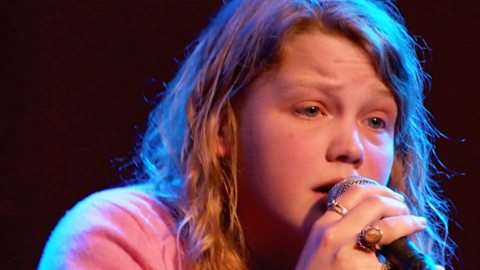
What is the power of poetry? video
Griff Rhys Jones on why poetry is powerful and how it differs from other forms of writing.
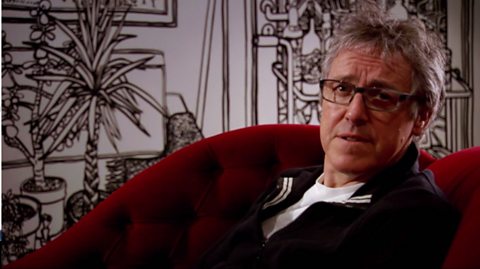
What inspires a writer? video
Anthony Horowitz discusses writing the Sherlock Holmes novels and shares his top tips for writing.
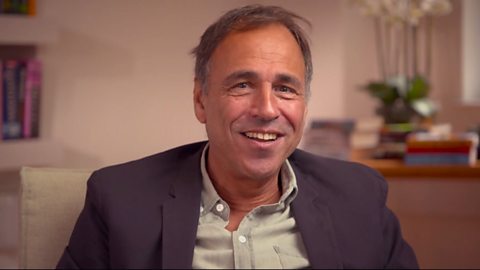
Comic strips and graphic novels. video
David Almond and Eoin Colfer explore flexibility of form in contemporary narrative writing.
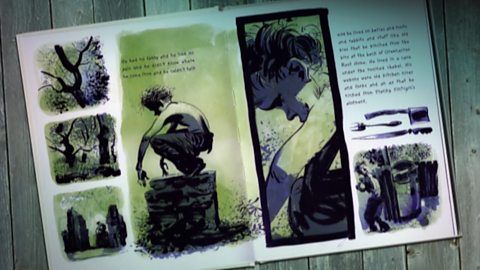
What makes travel writing engaging? video
Kate Humble offers detailed practical advice for ways to make travel writing engaging.
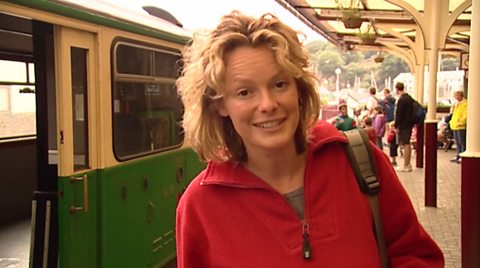
What makes good story writing? video
Jamila Gavin, Keith Gray, Jacqueline Wilson, David Almond and Malorie Blackman share their writing secrets, giving consideration to where they find their inspiration, what their writing triggers are, and how they get writing started.
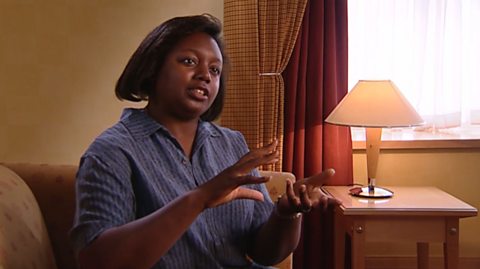
How did Arthur Conan Doyle create the character of Sherlock Holmes? video
Andrew Marr investigates the real-life inspiration for the character of Sherlock Holmes.
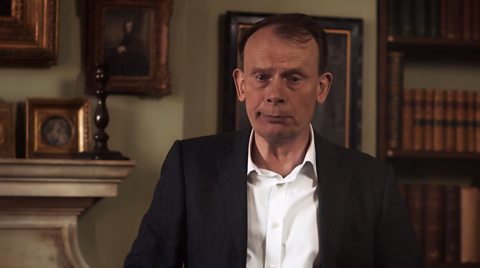
╠ř
╠ř